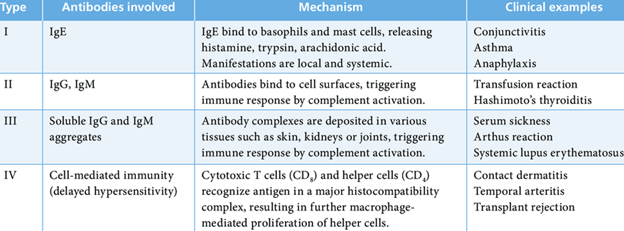A 65-year-old female is diagnosed with metastatic breast cancer. Which of the following cells would be produced in large quantities to eliminate the tumor cells?
Neutrophils
Eosinophils
Platelets
Macrophages
The Correct Answer is D
A. Neutrophils: Neutrophils are a type of white blood cell that plays a key role in the immune system's response to infections, particularly bacterial infections. They are not primarily involved in eliminating cancer cells.
B. Eosinophils: Eosinophils are another type of white blood cell. They are important in the immune response to parasites and are also involved in allergic reactions. While they have a role in the immune system, they are not the primary cells involved in eliminating cancer cells.
C. Platelets: Platelets, also known as thrombocytes, are not cells but rather small cell fragments. They are essential for blood clotting and do not directly participate in the immune response against cancer cells.
D. Macrophages: Macrophages are a type of white blood cell that are involved in the immune system's defense against cancer. They are phagocytes, which means they engulf and digest cellular debris, foreign substances, and cancer cells. Macrophages play a crucial role in the body's immune surveillance and response against cancer.
Nursing Test Bank
Naxlex Comprehensive Predictor Exams
Related Questions
Correct Answer is D
Explanation
A. Reddened tongue and gums: This side effect is not typically associated with ampicillin. However, certain medications or medical conditions can cause changes in oral tissues, leading to redness in the tongue and gums.
B. Digit numbness and tingling: Ampicillin does not commonly cause numbness and tingling in the fingers and toes. These symptoms can be associated with neurological issues or circulatory problems.
C. Bruising and petechiae: These symptoms can indicate bleeding disorders or low platelet count and are not usually caused by ampicillin. It's essential to investigate further if a patient experiences unexplained bruising or petechiae.
D. Skin rash and loose stools: Skin rash is a known side effect of penicillin-type antibiotics, including ampicillin. Loose stools or diarrhea can also occur due to disruption of the gut flora caused by the antibiotic. Patients should be aware of these possibilities and report any severe or persistent symptoms to their healthcare provider.
Correct Answer is B
Explanation
A. Type IV Hypersensitivity (Delayed Hypersensitivity Reaction): This type of reaction involves a delayed immune response, typically occurring 24 to 72 hours after exposure to an antigen. It's characterized by the activation of T cells and macrophages, leading to inflammation. This type of hypersensitivity is often associated with conditions like contact dermatitis and some autoimmune diseases.
B. Type III Hypersensitivity (Antibody-Mediated Reaction): Type III hypersensitivity reactions occur when immune complexes, which are composed of antigens and antibodies, deposit in various tissues. This leads to inflammation and tissue damage. Systemic lupus erythematosus (SLE) is an example of a disease associated with Type III hypersensitivity.
C. Type II Hypersensitivity: This type of reaction involves antibodies (IgG or IgM) targeting antigens on the surface of cells. This can lead to cell destruction through various mechanisms, such as complement activation or antibody-dependent cell-mediated cytotoxicity (ADCC). Examples include hemolytic transfusion reactions and autoimmune hemolytic anemia.
D. Type I Hypersensitivity (Immediate Hypersensitivity Reaction): Type I hypersensitivity is characterized by an immediate immune response, typically occurring within minutes of exposure to an allergen. It involves the release of histamines and other mediators from mast cells and basophils, leading to symptoms like hives, respiratory distress, and anaphylaxis. Allergies, like hay fever and food allergies, are examples of Type I hypersensitivity reactions.

Whether you are a student looking to ace your exams or a practicing nurse seeking to enhance your expertise , our nursing education contents will empower you with the confidence and competence to make a difference in the lives of patients and become a respected leader in the healthcare field.
Visit Naxlex, invest in your future and unlock endless possibilities with our unparalleled nursing education contents today
Report Wrong Answer on the Current Question
Do you disagree with the answer? If yes, what is your expected answer? Explain.
Kindly be descriptive with the issue you are facing.
